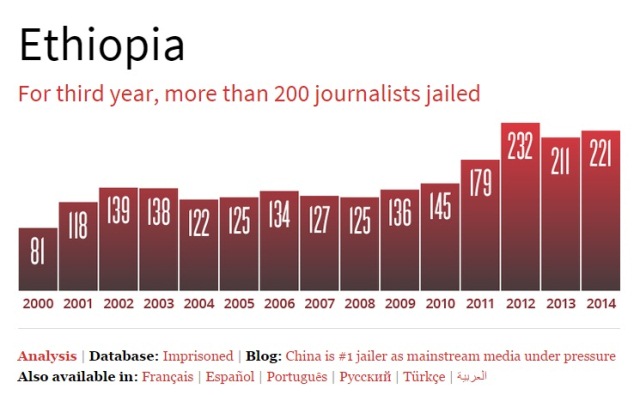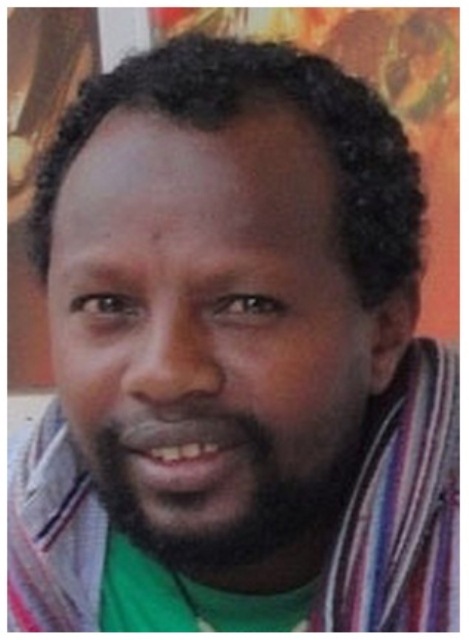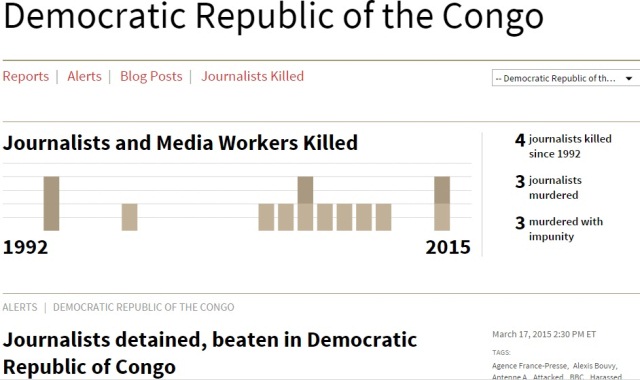Reports of cruelty to journalists in Ethiopia and the Democratic Republic of Congo should be taken seriously by both the decision making international community and journalists. The term “serious” is being used here to call for stern action against authorities in Ethiopia and Congo DRC.
News dispatches from the two nations this March, 2015, have described cruelty to journalists in the countries only imaginable under mad dictatorships. This website calls for actions of censure against authorities in Addis Ababa and Kinshasa; and that the African Union (AU) and the United Nations (UN) should encourage Ethiopia and the DRC to respect human rights and press freedom.
Journalism must be allowed to operate without the fear of narcissistic madness from authorities in the two countries. This website finds it reasonable to suggest a government news black-out from Ethiopia and Congo DRC to protest against the reported cruelty against journalists in the two nations.
Authorities in Ethiopia have denied medical attention to Ethiopian journalist Temesghen Desalegn, who has been imprisoned since October [2014], according to sources close to the journalist.
Temesghen Desalegn, owner of the now-defunct news magazine Feteh (Justice), is serving a three-year term in Ziway Prison, outside Addis Ababa, on charges of defamation, incitement, and false publication in connection with a series of opinion pieces he wrote in Feteh in 2012, according to news reports and a translation of the charge sheet which the Committee to Protect Journalists (CPJ) has reviewed.
Sources close to Temesghen, including two who visit him in prison, have told CPJ that Temesghen suffers from stomach and back pain for which he used to receive weekly medical support before he was jailed. The sources said that Temesghen has been denied medical access since he was imprisoned and that his back pain has worsened to the point that walking is difficult for him.
The African Charter on Human and People’s Rights, to which Ethiopia is a signatory, states that authorities are obligated to ensure that its citizens receive medical attention when necessary.
CPJ’s calls to the Ethiopian justice ministry in Addis Ababa, and CPJ’s calls and emails to the Ethiopian embassy in Washington, were not answered.
Earlier this year, prison authorities denied Temesghen prison visits from friends and family for more than a month, according to a public letter by Temesghen’s mother, Fanaye Irdachew. Authorities did not provide an explanation, but local journalists told CPJ they suspected Temesghen had been denied prison visits after an article he wrote from prison was published in several Ethiopia news websites. The articles detailed the mistreatment of prisoners at Ziway Prison.
Temesghen often criticized the authorities in his articles. In 2012, he wrote two articles that discussed the peaceful struggles of Ethiopian youth movements for political change, according to the charge sheet that CPJ reviewed. He also wrote two columns that criticized alleged government efforts to violently suppress student protesters and ethnic minorities reviewed.
“Temesghen Desalegn has not committed any crime. He is being punished for his criticism of the Ethiopian government,” said CPJ East Africa Representative Tom Rhodes. “We call on authorities to stop harassing Temesghen and allow him immediate access to medical care.”
Ethiopian authorities were holding at least 17 journalists in jail–more than twice the number as the year before–when CPJ conducted its annual prison census on December 1. Dozens of journalists fled Ethiopia in 2014 fearing arrest, CPJ research shows. Local journalists said they suspect authorities had cracked down on the press in order to silence critical voices ahead of May 2015 legislative elections.
On Sunday, March 15, 2015, police in Congo DRC detained about 30 individuals at a pro-democracy gathering in the capital, Kinshasa, according to news reports.
Four foreign journalists, working for Agence France-Presse, the BBC, and the Belgian broadcaster RTBF, were briefly detained, but two Congolese journalists working for the BBC and the TV channel Antenne A, are still in custody, news reports said. Police also forced reporters to delete photos from their phones or confiscated their equipment, news reports said.
One journalist, freelance Belgian reporter Alexis Bouvy, said he was assaulted while covering a demonstration in Goma that protested the mass detentions, the reports said.
“The media has a vital role to play in ensuring that citizens have access to information about events taking place around them,” said Sue Valentine, CPJ’s Africa program coordinator. “Journalists deserve the protection of security forces during demonstrations.”
These violations come at a particularly tense time for journalists working in the Democratic Republic of Congo.
In January, authorities blocked Internet and cellphone service, and more than 40 people were killed during a series of protests over the possible postponement of elections by President Joseph Kabila, according to news reports. The country is scheduled to hold presidential elections in 2016.
The Committee to Protect Journalists calls on authorities in the Democratic Republic of Congo to respect the right of journalists to do their work without fear of arrest or harm.
The cruelty committed against journalists in Ethiopia and Congo DRC can be translated as a lack of gratitude to the noble duty of this profession; the profession which has helped the two nations immensely in the past, and which this website believes wishes to continue serving the citizens of the two African nations.
Journalists brought world attention to Ethiopia during the 1984-85 Ethiopian famine–one of Africa’s worst disasters in history. That world attention brought relief to Ethiopia. Cops in boots and helmets did not bring world sympathy and empathy to Ethiopia; journalism did that! Ethiopia should respect this profession.
The plight of the people of Congo DRC as impacted by civil war, and the intrusion of foreign fighters is made known to the world by journalists. A semblance of peace and stability is showing signs of happening here because the international community is participating in the peace building process. Availability of information to the world has been key to this process. Journalism is serving Congo DRC well. This website calls on authorities in this central African nation to respect and set free journalists operating there.






